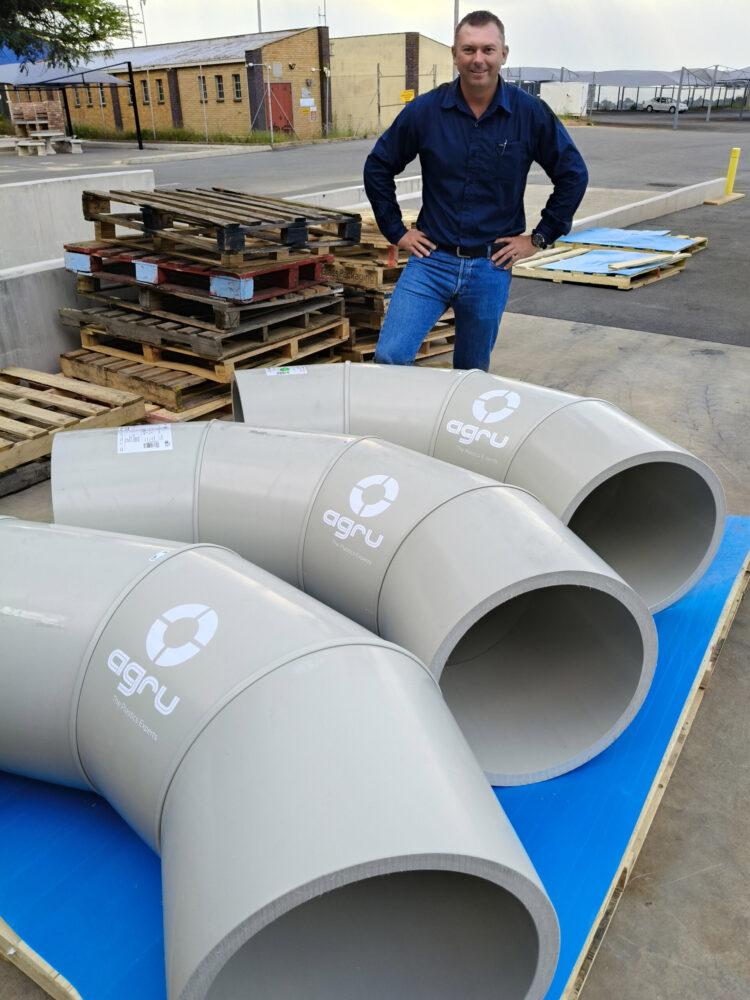Explore Our Bill Payment Services:

- Salary And Allowance
- Engineers Salary
- South Africa
Salary And Allowance Structure Of Polymer Engineers In South Africa
Polymer engineering, which overlaps closely with plastics engineering, is a specialized discipline in the world of applied sciences and engineering. It focuses on the design, synthesis, processing, and application of polymeric materials—substances that form the backbone of many products used in our everyday lives. From packaging and household items to automobile parts, medical devices, and petrochemical products, polymers are integral to countless industries.
In South Africa, polymer engineers work in diverse environments: large petrochemical corporations, manufacturing plants, packaging companies, research institutions, and universities. The demand for these professionals reflects the global rise in reliance on polymer-based materials and the continent’s growing industrial base. As industries expand, compensation structures for polymer engineers have evolved to become competitive, rewarding, and varied.
Unlike more mainstream fields like civil or electrical engineering, data for polymer engineers specifically can be scarce. However, salary structures for related roles—such as chemical engineers, process engineers, materials engineers, and plastics engineers—offer a reliable framework for understanding what professionals in this niche can expect in South Africa.
Salary Benchmarks: Related Engineering Roles in South Africa
To paint a realistic picture, it’s important to review how polymer engineering salaries align with roles in adjacent fields.
Plastics (Polymer) Engineer
Plastic engineering is perhaps the most direct cousin of polymer engineering. On average, plastics engineers earn around ZAR 1.2 million annually, with entry-level positions slightly lower and senior-level roles surpassing this mark. This places them among the better-paid engineers in South Africa, underscoring the importance of plastics and polymer technologies in the local economy.
Chemical Engineer
Since polymer engineering often falls within chemical engineering, this category provides valuable insight.
-
Average Salary: About ZAR 327,000 annually, or approximately ZAR 27,000 per month.
-
Range: Entry-level salaries start at around ZAR 125,000 annually, while highly experienced professionals can earn close to ZAR 874,000 annually.
-
By Experience:
-
Entry-Level (0–3 years): Around ZAR 12,000 monthly.
-
Mid-Career (4–9 years): Around ZAR 26,000 monthly.
-
Senior-Level (10–20 years): Around ZAR 45,000 monthly.
-
Over 20 years: Salaries can exceed ZAR 60,000 monthly.
-
Materials Engineer
Materials engineers, who frequently work with polymers, earn around ZAR 449,000 annually (about ZAR 37,000 monthly). In industrial hubs like Pretoria, salaries can exceed ZAR 1 million annually, reflecting regional disparities in pay.
Process Engineer
Process engineers—often employed in petrochemical and polymer-rich environments—average ZAR 39,000 monthly (about ZAR 472,000 annually). In top companies such as Sasol, the base salary for process engineers can reach nearly ZAR 700,000 annually, with senior professionals earning over ZAR 1.3 million annually when bonuses and stock options are included.
General Engineer
General engineers across industries average about ZAR 30,500 monthly (approximately ZAR 366,000 annually). However, in petrochemical companies like Sasol, engineers enjoy average compensation packages nearing ZAR 980,000 annually, well above the national engineering average.
Putting It Together: Salary Range for Polymer Engineers
Based on comparable professions, the projected salary range for polymer engineers in South Africa looks like this:
-
Entry-Level (0–3 years): Between ZAR 125,000 and ZAR 400,000 annually, depending on the size and nature of the company.
-
Mid-Career (4–10 years): Between ZAR 400,000 and ZAR 750,000 annually, particularly in specialist or private sector roles.
-
Senior-Level (10+ years): Between ZAR 700,000 and ZAR 1.3 million annually, with top earners surpassing this in leadership or corporate executive positions.
The variation in salary arises from several key factors:
-
Industry Sector: Petrochemical companies and multinational corporations pay far higher than smaller local manufacturers.
-
Company Scale: Large global firms offer better compensation packages.
-
Role Scope: Production and process engineers typically earn more than research-oriented engineers.
-
Education and Certification: Advanced qualifications such as Master’s, PhD, or registration as a Professional Engineer (PrEng) significantly enhance pay.
-
Location: Cities like Pretoria and Johannesburg tend to offer higher salaries than smaller towns.
Allowances and Benefits in Polymer Engineering Roles
Salary is only one aspect of total compensation. Engineers in South Africa, including those in polymer fields, often receive a wide range of allowances and benefits that increase the overall value of their packages.
Bonus and Profit-Sharing
-
Entry-level professionals often receive modest bonuses, ranging from ZAR 8,000 to ZAR 20,000 annually, tied to performance.
-
Mid-career professionals may earn between ZAR 30,000 and ZAR 80,000 annually in bonuses.
-
Senior engineers, especially in companies like Sasol, can earn additional compensation of ZAR 200,000 or more annually. Profit-sharing can sometimes account for up to 50% of base pay.
Health and Medical Insurance
Medical aid is a common benefit in South Africa, and many employers cover contributions either partially or fully. In senior roles, coverage often extends to family members, providing significant financial relief.
Other Perks and Allowances
Polymer engineers may also receive:
-
Housing Allowances, especially in remote postings or for expatriate staff.
-
Transport Allowances or Company Cars, often linked to senior positions.
-
Retirement Fund Contributions, including pensions and provident funds.
-
Group Life and Disability Insurance, protecting employees and their families.
-
Mobile and Laptop Provisions, essential for remote and hybrid work.
-
13th Cheque, a common South African practice equating to an extra month’s salary.
-
Educational Support, such as funding for conferences, workshops, and further studies.
Detailed Breakdown: Salary + Allowances Framework
To make this clearer, let’s break down what polymer engineers can expect at different career levels.
Entry-Level Polymer Engineer
-
Base Salary: ZAR 125k–400k annually (ZAR 10k–33k monthly).
-
Bonus: ZAR 8k–20k annually.
-
Medical Aid: Partial or full contributions.
-
13th Cheque: Typically included.
-
Other Perks: Basic tools like laptops, occasional transport allowances.
Mid-Career Polymer Engineer
-
Base Salary: ZAR 400k–750k annually.
-
Bonus: ZAR 30k–80k annually.
-
Medical Aid: Often includes family coverage.
-
Retirement Contributions: Standard pension or provident fund.
-
Allowances: Housing or transport allowances.
-
Other Benefits: Possible company car, better insurance coverage.
Senior Polymer Engineer / Lead
-
Base Salary: ZAR 750k–1.3M+ annually.
-
Bonus & Stock Options: Between ZAR 200k–300k or more.
-
Medical Aid: Full family coverage, often premium plans.
-
Housing/Transport: Housing allowances or company vehicle.
-
Retirement: Higher contributions with executive-level insurance.
-
Professional Incentives: Support for advanced certifications, conferences, or even international postings.
Why Compensation Varies Widely
Salaries for polymer engineers can differ significantly, even for professionals with similar qualifications. The main reasons are:
-
Industry Sector: Petrochemicals and large corporates offer higher salaries compared to research or small-scale industries.
-
Experience and Education: Advanced academic qualifications and professional registrations boost earning potential.
-
Geographic Location: Johannesburg, Pretoria, and Cape Town generally provide higher compensation than smaller towns.
-
Company Size: Multinational companies usually pay more and offer comprehensive benefits.
-
Role Complexity: Strategic and leadership positions naturally attract higher pay.
Final Thoughts: Navigating the Landscape
Polymer engineering in South Africa is a financially rewarding profession with significant growth potential. While entry-level roles may start at modest levels, steady growth occurs as professionals build experience, earn certifications, and move into specialized or leadership positions.
Allowances such as medical cover, housing support, bonuses, and retirement contributions substantially boost the value of total compensation. This makes polymer engineering not just a career but also a pathway to financial stability and professional growth.
For graduates and young professionals, the focus should be on gaining relevant experience, pursuing advanced qualifications, and securing professional registration. Mid-career professionals should negotiate holistically, considering both salary and allowances. Senior professionals can maximize benefits by targeting high-paying employers and sectors.
Summary Table: Polymer Engineer Compensation in South Africa
| Career Level | Base Salary (Year) | Bonus & Perks | Total Compensation (Approx.) |
|---|---|---|---|
| Entry (0–3 yrs) | ZAR 125k – 400k | ZAR 8k–20k + medical aid | ~ZAR 135k – 420k |
| Mid-Career (4–10) | ZAR 400k – 750k | ZAR 30k–80k + housing, medical aid | ~ZAR 450k – 900k |
| Senior (10+ yrs) | ZAR 750k – 1.3M+ | ZAR 200k+ + stock + premium benefits | ~ZAR 1M – 1.6M+ |
9. Suggested Tips for New Graduates & Professionals
-
Clarify Job Titles: Polymer roles may be advertised under “chemical,” “process,” or “materials engineering.”
-
Negotiate Beyond Salary: Consider housing, bonuses, medical aid, and retirement.
-
Invest in Growth: Advanced qualifications and professional registration increase earning potential.
-
Target Leading Employers: Major petrochemical firms and large manufacturers offer higher packages.
-
Stay Regionally Aware: Cities like Johannesburg and Pretoria generally pay more.
Final Word
Polymer engineering is an exciting and rewarding career path in South Africa. From entry-level salaries starting around ZAR 125,000 to senior packages exceeding ZAR 1.3 million, the profession offers immense potential. With structured allowances, bonuses, and benefits, polymer engineers can enjoy financial stability, career progression, and opportunities to work in some of the country’s most dynamic industries.









